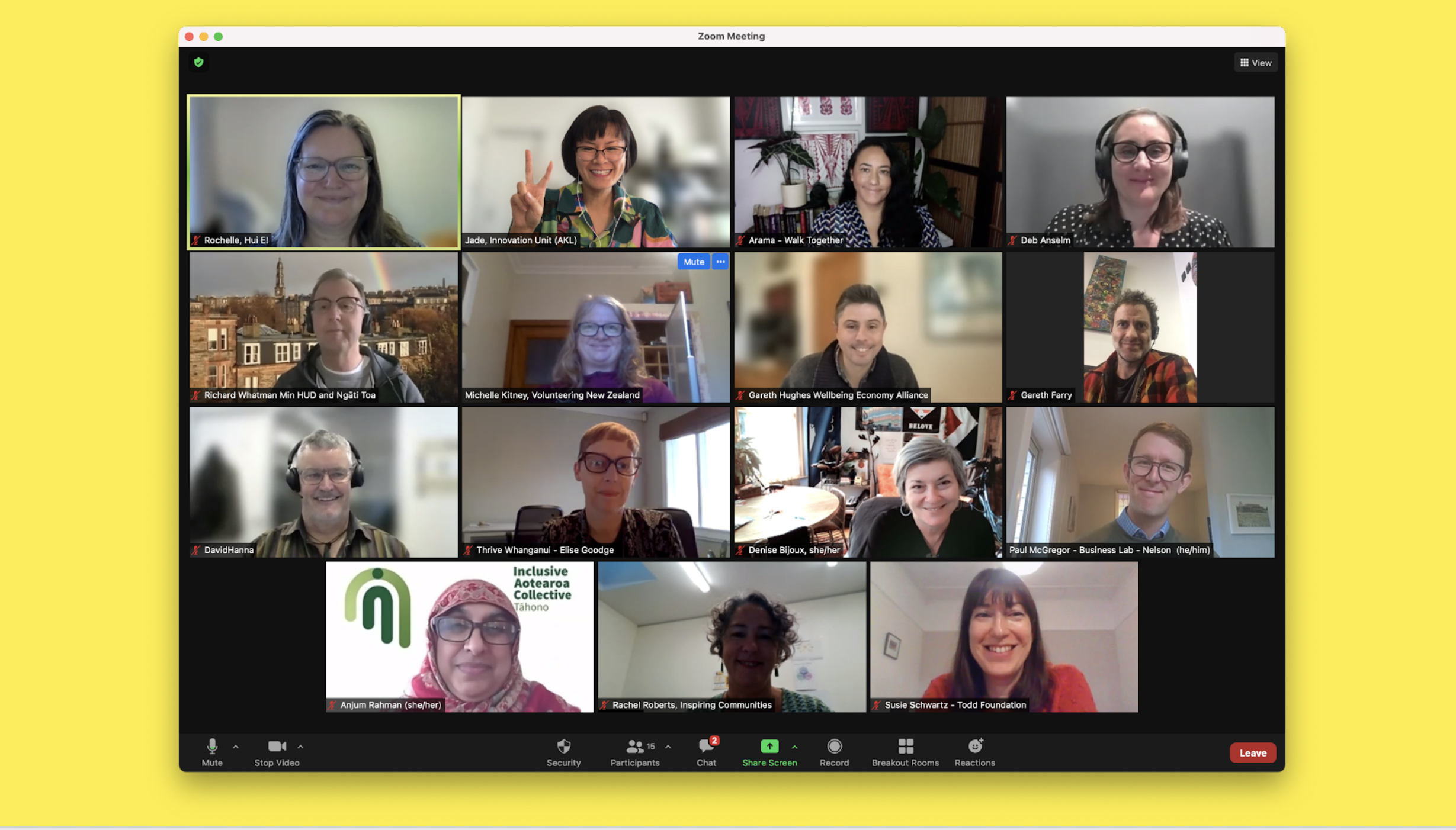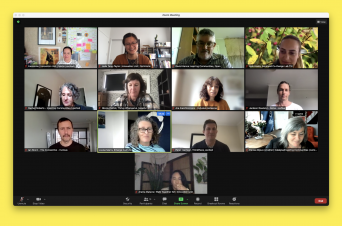
A reflection on the second Collective Change Kōrero – what’s emerging?
blog | 17 Jun 2022
Taking the time – having the space to stop, reflect and then converge with other changemakers when there is so much else to be done – is the perfect time to join a kōrero to think about what we are currently doing and what could be possible to make space to create change.
This was one of the many insights that popped to the top of the second Collective Change Kōrero held online recently.
Ehara taku toa i te toa takitahi, engari he toa takitini.
Success is not the work of an individual, but the work of many.This whakatauki speaks to the collective effort necessary for success, and applies equally in any situation where the combined efforts of many are needed to complete a project.
An assumption is that all of us want things to be better – we are working in many different places and sectors and we have a collective sense of the complexity. We are noticing and are inspired by activity that is creating change, while also noticing the scale and pace of activity going nowhere. We need a collective space that enables us to take time to be part of what will emerge from Collective Change Kōrero because ultimately that is what will add value to our networks, our roopu, our iwi and hapū. It is up to all of us to pick up the conversation to be creative, collaborative, and effective in this.
While hard to do this justice, as there was so much richness, experience, practice and ideas offered in the 2-hour hui, here’s just some of the whakaaro shared by the 15 changemakers present.
Noticing what is happening is always a good place to begin, and is the genesis for starting this conversation – and there is a lot of noticing of what is happening. Over 50 thoughts thrown onto the jamboard: so much positivity – neighbourhood-scale action, place-based initiatives, there is effective mahi happening. People have a desire for self-determination, however this requires a well navigated transition and those with power will need to act with a more equitable approach. Investing time into more intergenerational, intercultural, and inter-disciplinary collaborative initiatives. Lots has been learned over the past two years – it can’t be wasted, and while there’s mostly optimism, healing unresolved trauma as well as underlying cultural change is required. More co-governance, changes to leadership, in particular the political and public service approaches.
There is an opportunity to collaborate on a common language, to call out rhetoric over action to drive and create the changes going forward together. Who doesn’t like a good powerful question that lends itself to thinking about the future? It is worth noting the themes that emerged in this session were very similarly future-focused. The future starts with whānau and hāpu. With indigenous ways of doing things that enable varied pathways, imagine a Te Tiriti house next to Parliament…imagine a future where people, place and planet are the triple bottom line, where Papatūānuku is nurtured and regenerated, that there is stronger, better resourced local governance, a world in which we all slowed down, had more time for relationships – a future with more autonomy over our lives.
Reflecting on te tāwara, the buzz of the conversation, in this hui:
People enjoyed the time thinking collectively about growing a shared language and common vision.
Sharing and hearing from everyone who joins in, a desire to tap into this collective wisdom more often, to join up on each other’s existing mahi making it more impactful.
Imaging and planning for all of us to be thriving in ways that bring everyone into ‘enough’. People like the energy for a better world, the optimism and belief in our resilience to weather the coming storms. Building momentum in ways that are equitable, decolonise and regenerate.
How can we kōrero with others who are not like us? People who are doing well in the current system and who hold some of the power to block change? And there was a desire from some to come up with actions we can do together, how can we work as a group?
I like the energy we all have for a better world. I wish there was more time to talanoa/wananga. I wonder what a shared vision would look like. I will be back.
I like the optimism of the kaupapa, I wish we all had a money tree, I wonder where the pandemic will take us next, I will continue to believe in our resiliency to weather the coming storms.
I like imagining/planning for all of us to be thriving in ways that bring everyone into ‘enough’
There is a solid commitment from those attending to continuing the conversation. This approach is about connecting a ‘collective of collectives’, it’s not about creating another initiative or network and it is not set in must dos or shoulds, instead held in whanaungatanga from where magic will emerge.
The coordinating team of this hui have agreed to meet and develop what surfaced. However, as this Collective Change Kōrero is not held by any group we would like to share the roles, we would love to hear from you if you would like to be involved in coordinating the next hui. It doesn’t take much and offers more opportunities to connect and kōrero. Please feel free to have a chat with any of us.
If you were unable to attend but would like to contribute your thoughts, or read more of the contributions, jump on the jamboard – it’s a living document.
Ngā mihi,
Arama, David, Jade, Rachel and Rochelle
June 2022 Coordinating team
Arama Mataira
Jade Tang-Taylor
Rochelle Stewart-Allen
Rachel Roberts
David Hanna
So who is we? Here’s a list of those participating in the Collective Changemaker Kōrero to date:
Wesley
Hui E! Community Aotearoa
Innovation Unit
Te Pūtahitanga o Te Waipounamu
Social Wellbeing Agency
TSI/ Co-design Lab
Reap Aotearoa
Volunteering NZ
Todd Foundation
Te Tihi Alliance
Wellbeing Economy Alliance
Ākina
Catalyse
Collaborate CIC
Flaxroots
Thrive
Walk Together
Inclusive Aotearoa Collective
Thinkplace
The Connective
Unity House NZ
Emerge Institute
Foundation North
Dovetail
Sustainable Finance
The Lever Room
Te Tūāpapa Kura Kāinga – (HUDs)
Independent Changemaker
